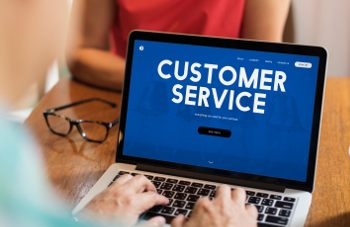Greenwashing – What you should know
Greenwashing is a hot topic these days. Learn more about this taboo marketing tactic, why it’s problematic, and how it affects our industry.
What is greenwashing?

The Cambridge dictionary defines greenwashing as a marketing practice employed by companies to make individuals believe a company is doing more to protect the environment than it really is. Originally coined in the 1980s, greenwashing was used to describe the ludicrous environmental claims being made by large corporations. The original case studies included oil-giant Chevron’s ‘People First’ campaign, which centred around wildlife preservation, and a Shell campaign, which touted a tar sands project as ‘sustainable’. Since then, greenwashed marketing tactics have evolved and are now more subtle, and include common marketing lingo like ‘eco-friendly, organic, carbon neutral, and non-toxic’.
Why is it problematic?

We have more information than ever before. Today’s customers have the resources and tools to educate themselves on sustainable practices, products and supply chains. Not to mention, the media is always looking to expose companies that are falsifying information. Today’s customers value honesty and transparency, and don’t want to feel cheated by the brands and businesses they support. Because of this, corporations like Canada Goose and Reformation now share their sustainability reports and goals with their customers. This trend will only continue, as a recent report showed that 65% of Generation Z purchasers try to ascertain the origins of the products they’re buying.
Greenwashing in our industry

Greenwashing can be especially harmful in an industry like garment care. Dry cleaners using signage touting ‘organic dry cleaning’ can diminish the real efforts of our environmentally driven industry partners. What’s the difference between green and GreenEarth? If a dry cleaner claims to be non-toxic, does it mean other dry cleaners are always toxic? Confusing, isn’t it? Customers are starting to ask smarter and more detailed questions, and we need to have honest and accurate answers.
Rather than exaggerate the truth when it comes to environmental initiatives, let’s focus on our businesses’ other key differentiators. Do you offer same-day service? Extended hours? Win over your customers with existing capabilities and strengths, rather than scramble to figure out how to pivot to become a ‘green cleaner’ in the short term.
Where do we from here?
You should have sustainability goals in your business plan. 75% of millennials believe companies with good social and environmental practices will be more profitable. Take the time to analyze your current state and consider an action plan to move forward.

Let’s prioritize education and learn from sustainable leaders in our industry, as there are many. Visit GreenEarth’s website to learn more about the environmental impact of solvents, or take a look at companies like TSC WetClean or Fishman’s, which are wet clean-only facilities. Industry groups like CINET have a wealth of information about sustainability metrics that you can compare to your own operations, and use to evaluate environmental claims of those with whom you do business.
In short, act like your customers. Do some research. Be skeptical about your own claims to being ‘green’ and check to see that they can be backed up. If they can’t, then move to promoting other aspects of your business that will make customers want to do business with you.
When it comes to sustainability and marketing, it’s best not to fake it until you make it. Be real, be honest, and be ready to offer evidence of your environmental actions.






